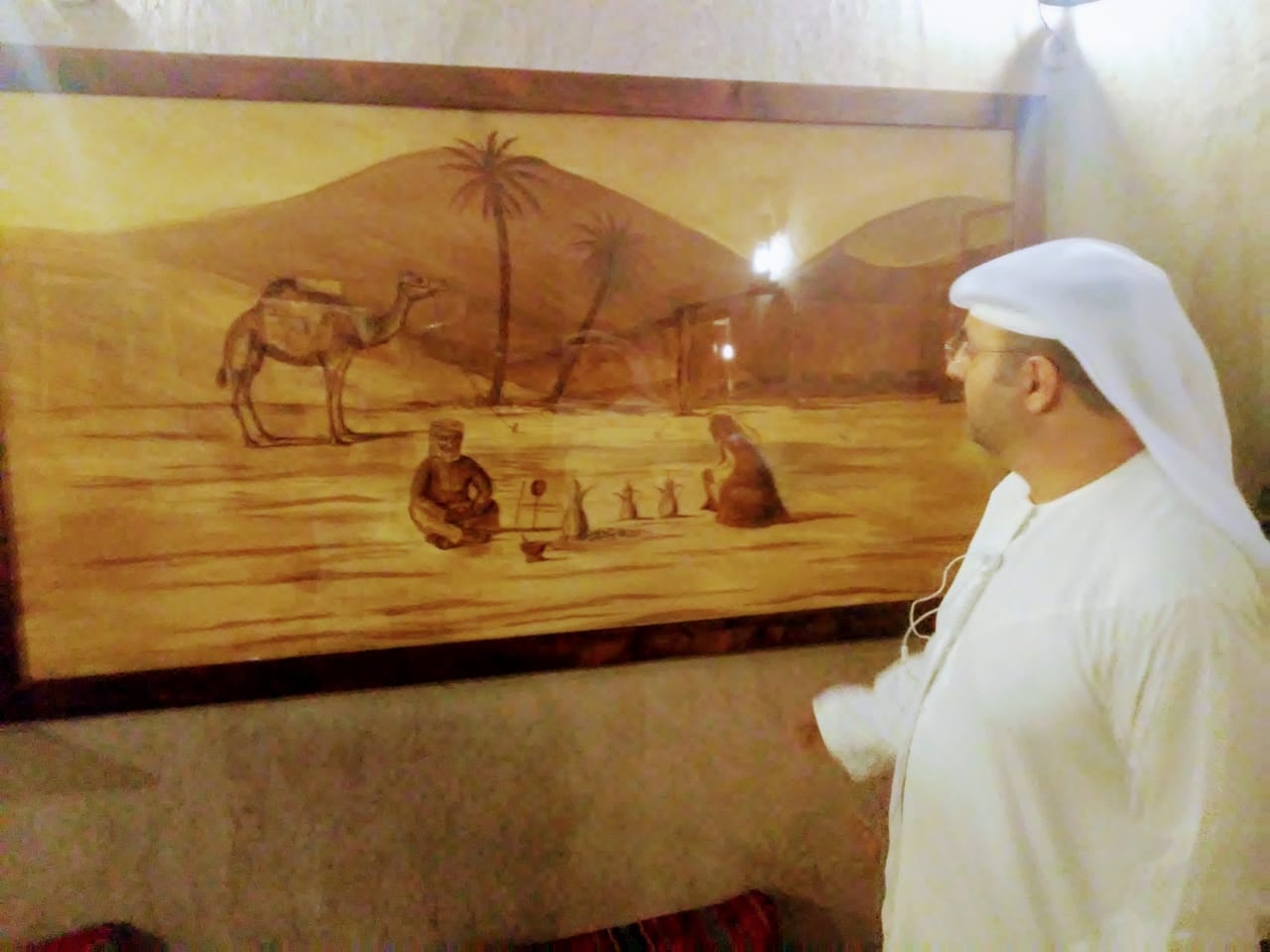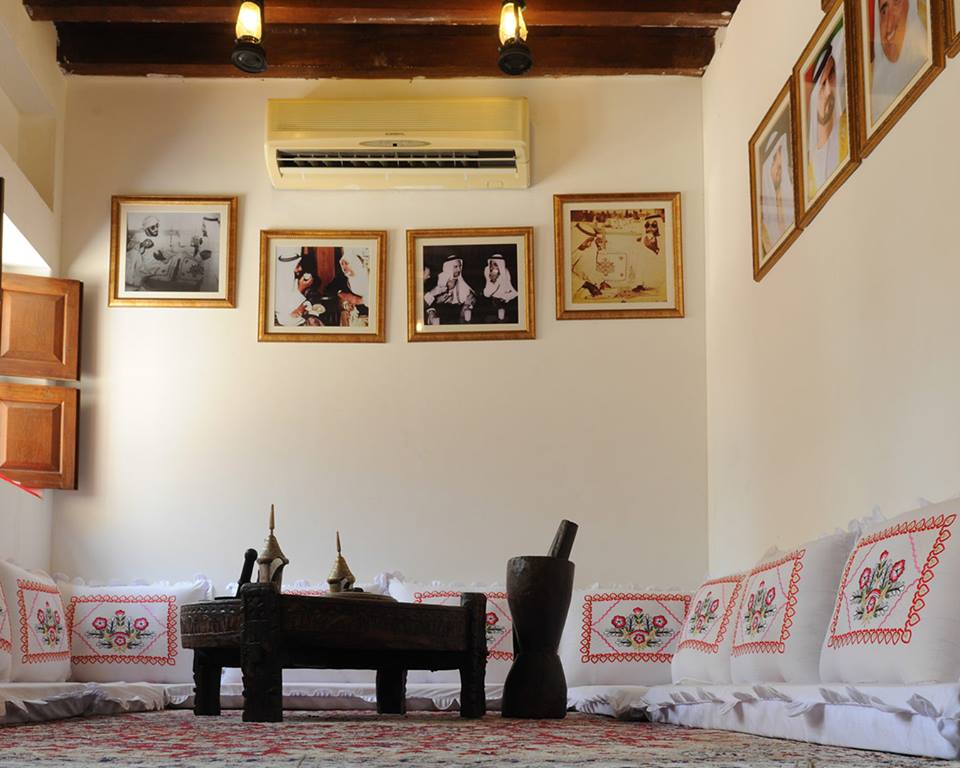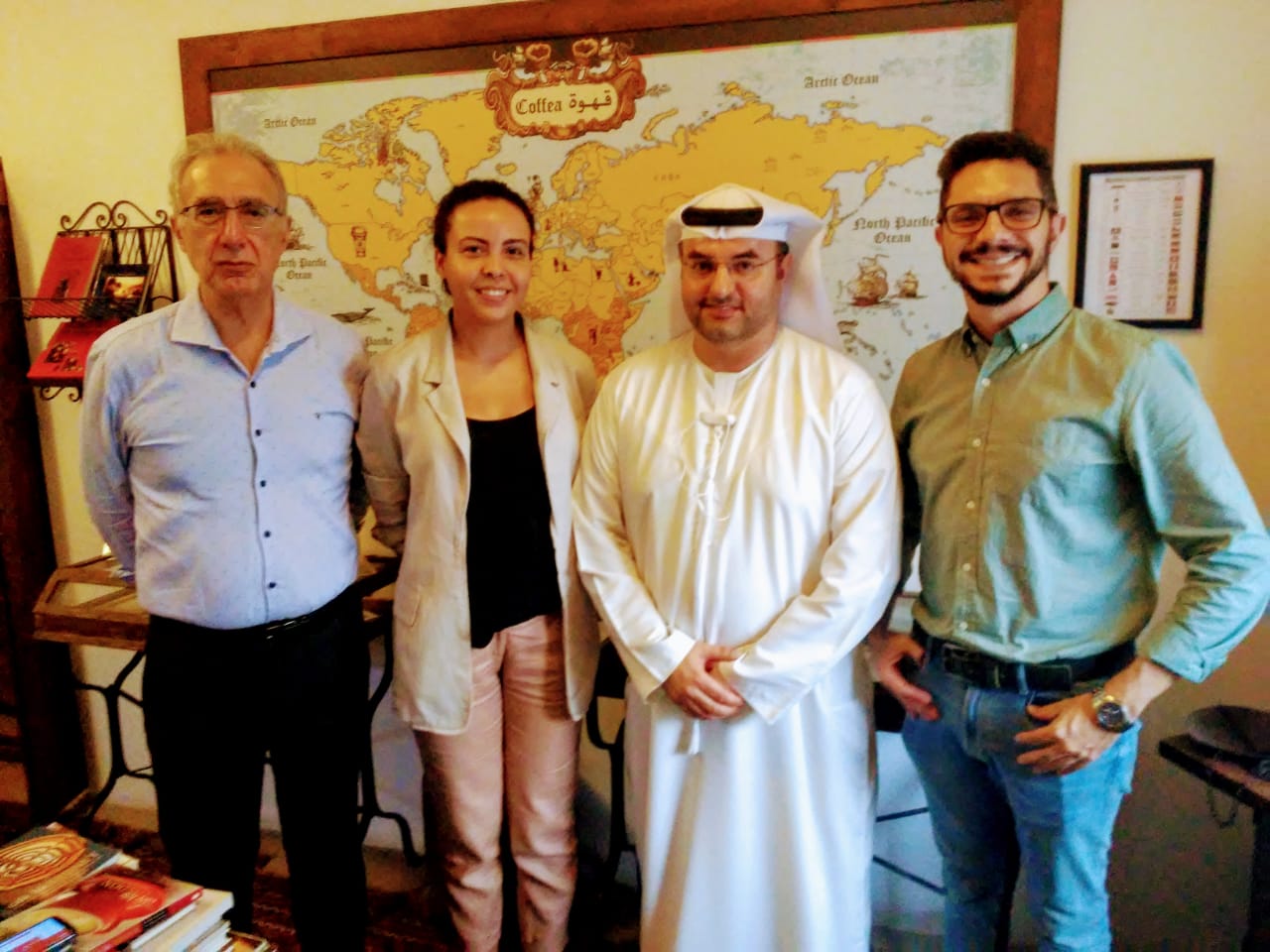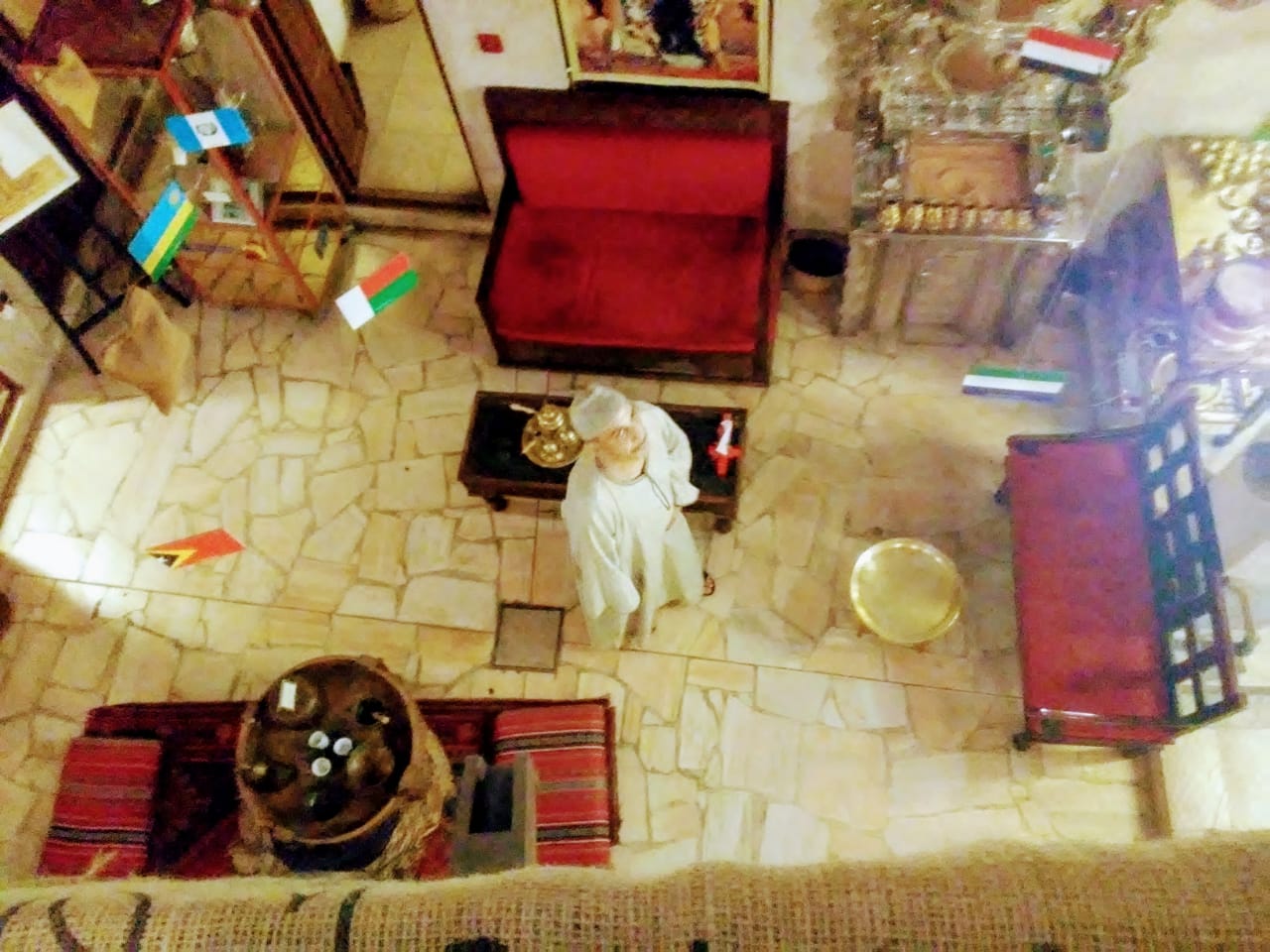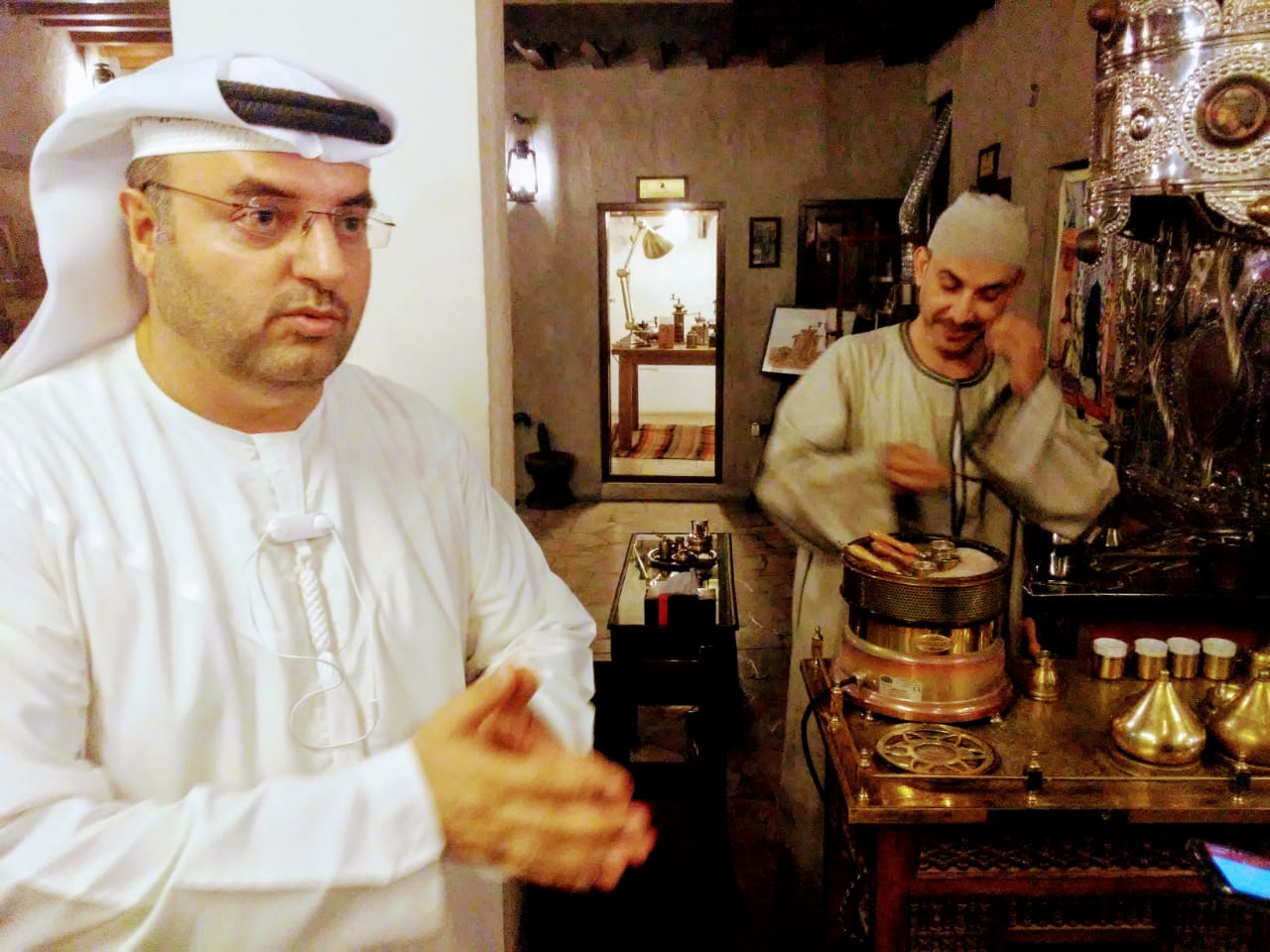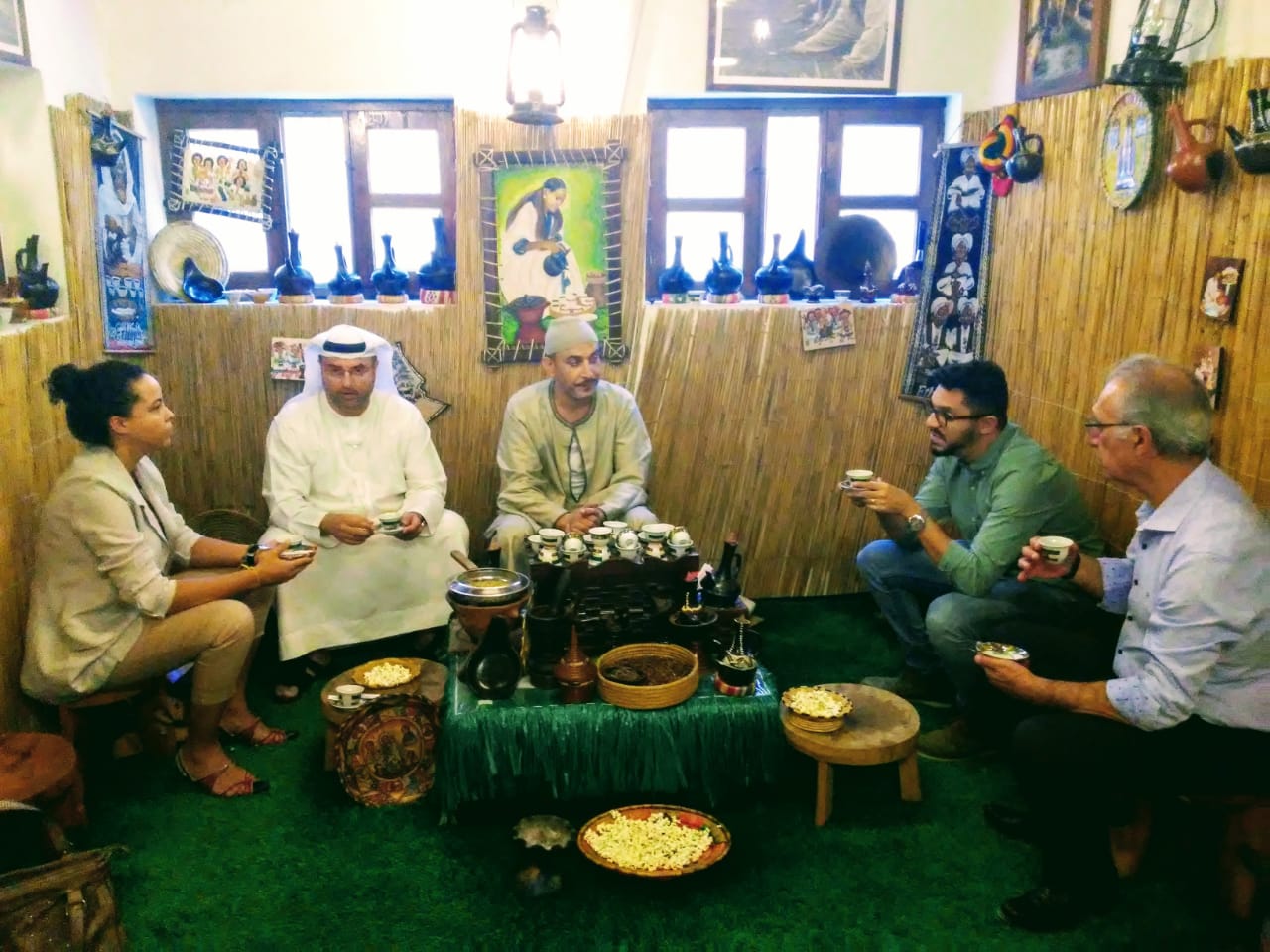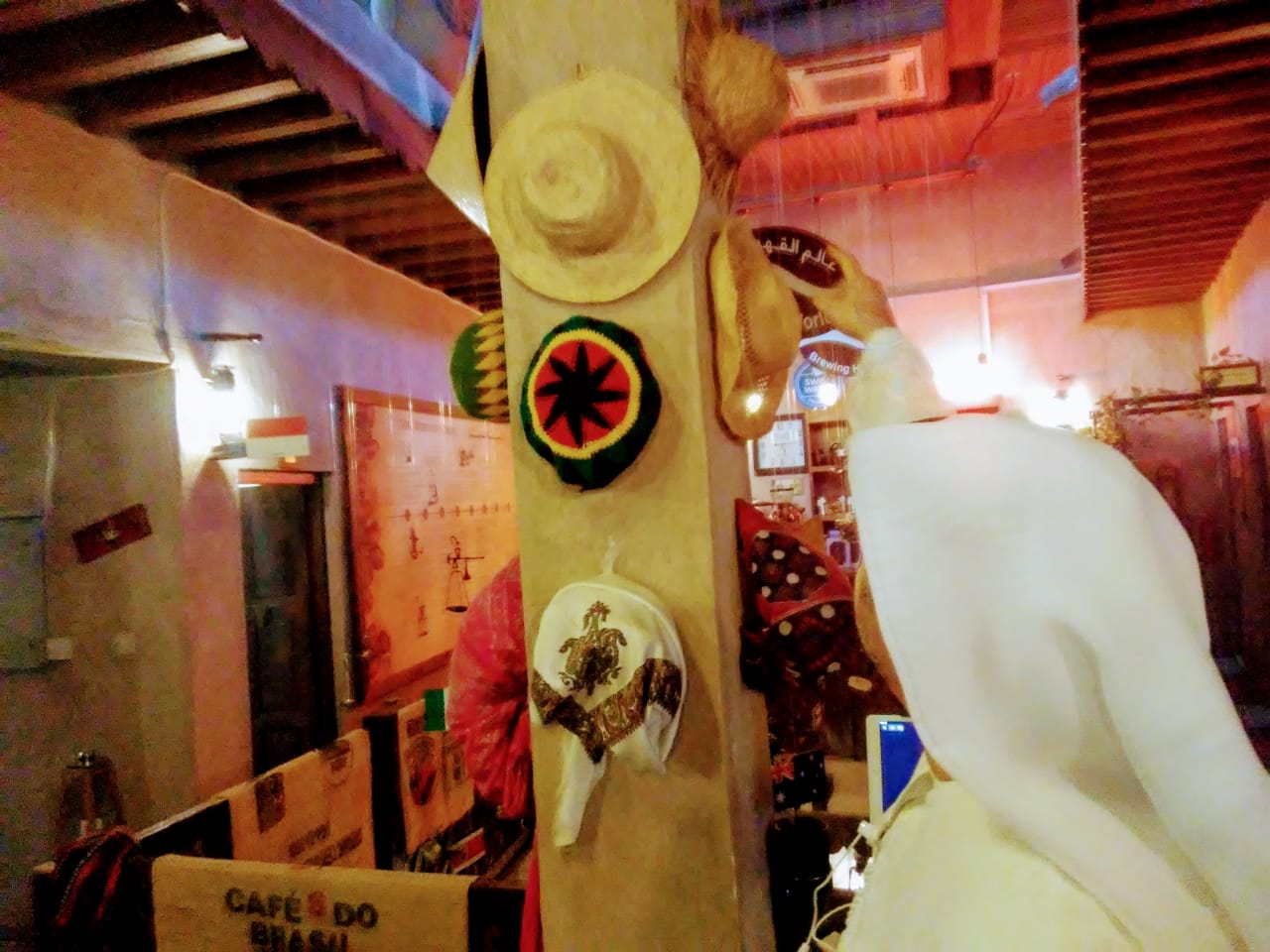Dubai – In one of Dubai’s heritage hubs, Al Fahidi, a 150-year house is an invitation to drink coffee and learn more about the history of the bean and its consumption around the world. The United Arab Emirates aren’t traditional coffee producers, but an Emirati’s passion for the beverage caused the country to have a Coffee Museum as a tourist attraction.
The museum is the former residence of an Emirati family, and this relaxing atmosphere to sit around and talk is still there. It consists of two floors of small, cozy rooms filled with stories about coffee. It gets even better if you can get a tour with the founding owner Khalid El Mulla.
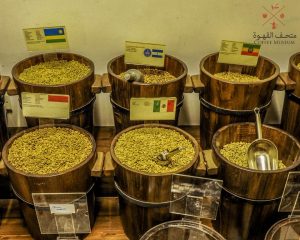
There are many memories about coffee on the ground and first floor, starting with international antiques such as the first ever coffeemaker to arrive at the UAE from Japan, coffee roasting and brewing equipment from different parts of the world and times. A British royal grinder? They have it. An old coffeemaker from Ethiopia, a neighbor country where the bean came from? The museum owns one too.
In a corner of the museum, it’s even possible to experience a little bit of the Ethiopian ritual to consume coffee. Tourist sit on stools around a coffee equipment and its handler and wait for their bowls to be filled. It’s served with popcorn, which is another Ethiopian tradition.
The museum also features a machine that is a reinterpretation of the equipment used in Egyptian palaces where the beverage is heated in containers over a hot plate with sand. The museum owner, a big coffee importer, imports these machines from Greece and distributes it in the UAE and the region.
The museum is filled with coffee surprises. A large picture in one of the central rooms shows the Arab desert landscape with camels, mountains, palm trees and Bedouins sitting on the ground brewing their coffee. The painting was made with coffee. Mulla said the artist took eight months to complete the work.
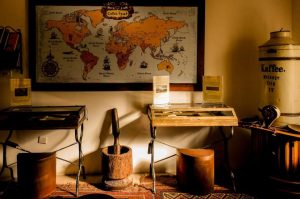
The place features a room called Majlis, which is full of carpets and pillows to sit around, where the ritual around the Arab coffee requires you to be barefoot. “Even if one doesn’t have anything in their pockets, if they want to welcome their guests, they’ll serve coffee and dates, the owner said about the Arab custom to host visitors with the drink.
This has been an Arab way of showing hospitality for over 100 years and now it’s replicated in five-star hotels, airline lounges and government departments around the region, Mulla said. The entrepreneur explained that offering coffee like this means that someone is welcome.
On the first floor, there’s a coffee brew bar (pictured above) which is also decorated with items of the history of the bean. A good surprise are the hats hanging on a column, which are used by coffee farmers in different parts of the world, such as Indonesia, Yemen, Jamaica, and Latin America countries. Other nice surprise is a huge picture of the world, showing the world’s producing region and coffee museums.
There are also books from different countries about coffee, graphic exhibitions on the production process, crops above and below sea level, and others. Brazil is present in pictures, flags, equipment, the production map, and other spaces, as well as in Mulla’s speech, when he talks about the largest coffee producers. The founder imports coffee from Brazil – and other countries – to distribute around the region.
(story continues after photo gallery)
Mulla came up with the idea to open a tourist and historic space about the product when he worked at the industry with his company Easternmen & Co. He says that, when participating of a trade show, he put a historic piece about coffee in front of a stand, which drew much attention. He started collecting equipment and, when he was at a coffee museum in Hamburg, Germany, he decided to do something like that.
The museum was visited last week by Arab Brazilian Chamber of Commerce president Rubens Hannun, Institutional Relations manager Fernanda Baltazar, head of international office in Dubai, Rafael Solimeo, as well as this ANBA reporter. The group was welcomed by Mulla, who personally showed them around.
The entrepreneur said that many Brazilians and Latin Americans visit the museum. He said he doesn’t have the number of visitors from Brazil but that one can have an idea of the flow from each country when the groups arrive at the second floor, where one can see the countries’ flags. The tourists’ proud expression gives them away.
Besides running the museum and his company, Khalid Al Mulla is Specialty Coffee Association UAE national coordinator. The several activities done through the association include organizing world coffee championships in the Arab country and a social work that includes training people with special needs in coffee-related activities.
The museum receives individual and group visits. Tourist guides from the UAE are trained and have information on the establishment. Admission is AED 10 (USD 3).
Quick facts
Dubai Coffee Museum
Villa 44 – Al Fahidi Historical Neighborhood
Bastakiya – Dubai – UAE
Find out more: Website – Instagram – Facebook
Translated by Guilherme Miranda




